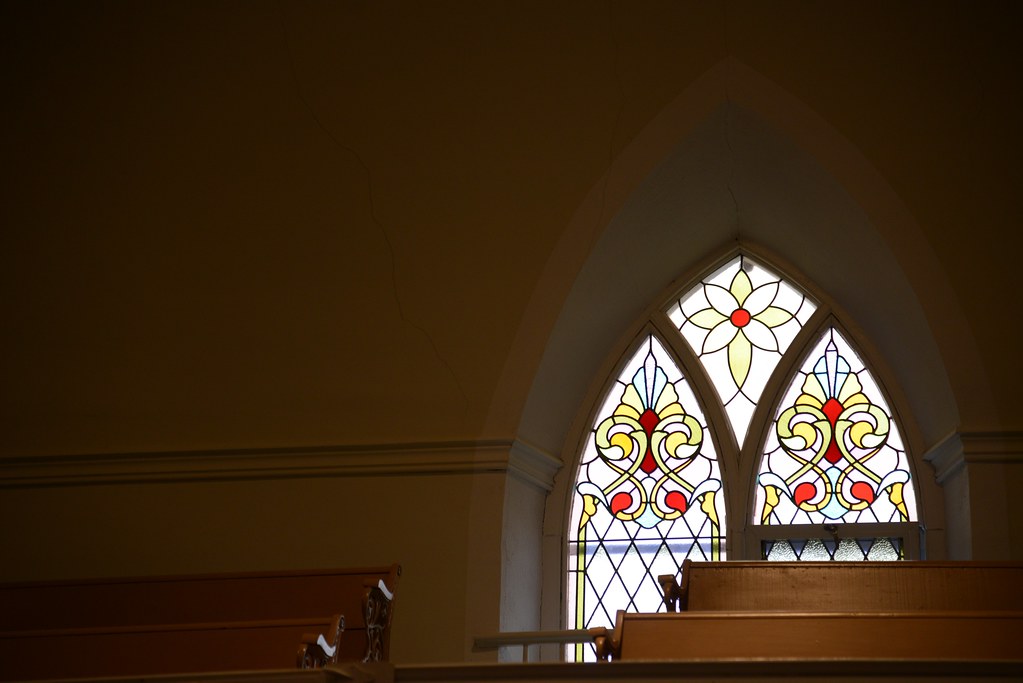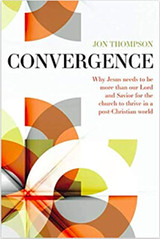When I first heard Pastor Jon Thompson, dots began to connect in a powerful way —- and when we sat together later, he spoke about Jesus not just being our Saviour and Lord but our Model. Spiritual gifts, spiritual disciplines, spiritual experiences — he gave me handles that I had been looking for. This was the word we all needed right now:
When I was an eighth grader. I said to my pastor, “Where’s all the cool stuff?”
He answered, “What are you talking about?”
I tried to explain to him that as I read the New Testament I realized even at my age that the amazing stories on the pages were not replicated in ways I could see around me among Christians.
Jesus and His followers had all these cool things happen around them. I wanted to know where all the cool stuff was today!
He then said, “Jon, Jesus was God; you’re not God. Your expectations have to change.”
I had already accepted the fact that Jesus was God, so I reluctantly changed my expectations.
Years later, I understood why he responded the way he did, but I came to realize that though his basic statement was true, it didn’t go far enough.
As God come in the flesh, Jesus isn’t just our Saviour and our Lord; He is also our model.










That might not sound all that earth-shattering to you, but I believe you’ll realize as you read this book that Jesus’ role as our model should have just as much impact on our lives as the fact that He is Lord and Savior.
This is because Jesus, though always God, deliberately chose to limit His divine attributes and power in order not only to show us who God is but also to demonstrate for us what the normal Christian life should look like.
Jesus used spiritual disciplines to walk with the Father, and develop and learn as we do: “Jesus grew in wisdom and stature and in favor with God and man” (Luke 2:52).
Jesus also used spiritual gifts (not His inherent power) to actually carry out His ministry while on earth. And He used the promptings He received from the Father and the Spirit to lead His disciples into moments of revival.
His life is the ultimate example of convergence.
You see, convergence is when three unexpected things come together. Spiritual gifts, spiritual disciplines (or practices), and unusual works of the Spirit (revival) converge to form the authentic Christian life.
These are signs of the living Church; the one Jesus founded and that He promised would prevail even against the gates of hell.
Perhaps many of us live out our spiritual lives in ways where those three things aren’t taught or practiced.
Sometimes we tend to focus on one of these and exclude or minimize the others.
Sometimes we make spiritual practices the central point of discipleship.
Or, other times, we emphasize spiritual gifts as the main thing.
Convergence describes believers determined to see all three come together.
If Jesus provided that model, that should be the walk of every believer, no matter how we might differ in other ways.Though spiritual gifts are normal and assigned, and though the spiritual disciplines are normal and should be practiced by everyone, during times of revival/renewal there is a greater openness to what God is doing. This leads to heightened awareness and prayer to recognize and encourage gifts that have not been seen before.
It’s not about the giving of the gifts, but fanning them into flame.
Remember when Jesus talked about wineskins? Many attempts at adaptation by local churches have focused only on changing models, but Jesus said, “And no one after drinking old wine wants the new for they say, ‘The old is better’”(Luke 5:39).
Convergence recognizes the usefulness of new “wineskins” and new “wine” but doesn’t lose sight of the “old wine.”
If it’s hard for you to imagine what I’m describing in today’s setting, here’s how I’d put it: If we could get Tim Keller, John Wimber, Dallas Willard, and J.I. Packer to take turns speaking, while we sing Bethel and Hillsong worship music and celebrate communion like Anglicans!
There’s no scarcity of fine “old wine” and very good “new wine” too. You see, the various “streams” of old and new traditions I just mentioned seldom converge in one place—but they should.
I remember sitting in a class when my professor pointed to a three-legged stool and changed my life forever.
He said, “See that stool? Take away one leg and what happens? If you’re sitting on it, you’ll fall over.”
That is what’s happening in hearts all over the world.
Having a clear view of Jesus doesn’t in itself ensure personal discipleship. We can know a lot of truth about Christ and still live ineffective, disobedient, and powerless lives.
The first leg of the stool represents allegiance, primarily faith in Christ as Lord and Savior. This is faith as an active verb as well as a body of belief. It is a growing trust that allows God to do His saving work on our behalf completed in Christ on the cross and continued by the Holy Spirit daily.
This matches up with Jesus’ claim in John 14:6 to be the Way.
The second leg represents truth. This is the teaching of the whole counsel of God, continuously displacing lies and training followers of Jesus to greater understanding of God’s will and God’s ways.
Though we come across truth and insight continuously throughout life, the Scriptures, as stated, are the Supreme Court in our quest for truth and present the final word.
Jesus told us in John 16:13 that the one He would plant within us would guide us into all truth. That is why, in Acts 2, the first description of the early church starts with the Apostles teaching.
It’s also why Paul wrote in 2 Timothy 3:16, “All Scripture is God-breathed and is useful for teaching, rebuking, correcting and training in righteousness.” Jesus also called Himself the Truth (John 14:6).
The third leg of the stool represents spiritual power. Because every single one of us is a part of the fallen human race and can be under the influence and power of the devil, it is crucial that we depend on the power made available to us by Jesus and the Father sending the Holy Spirit to indwell His people.
We are not just talking about the correct doctrine of the Holy Spirit as the third person in the Trinity, but also the active, immediate, promised, and experienced work of the Holy Spirit in this messed up place we call the world.
Asserting the power of the Holy Spirit as a line in the Apostles’ Creed is not quite the same as relying on and seeing the Holy Spirit very much at work in a myriad of ways in people’s lives, much as we see happen in the pages of Scripture. This matches up with Jesus’ claim in John 14:6 to be the life.
Jesus is not just our Savior and Lord; He is our model.
In Him and through history, though under many different names, we see convergence happen again and again, with world-changing results.
Now is the time to return to the only place of guaranteed power, of guaranteed transformation, and guaranteed life change–the place where the world truly is changed and where the kingdom comes on earth as it is in heaven.
Lord hear our prayer, and make us like this. Amen.
Jon Thompson is the Lead Pastor – Vision & Preaching of C4 Church, a multi-site church in the Greater Toronto Area where he has been on staff for more than 20 years. Jon has a Masters of Theological Studies from Tyndale Seminary, Toronto and a Doctorate of Missiology from Fuller Seminary, California. Listen in on this recent podcast interview with Jon and Pastor Carey Nieuwhof.
Convergence shows how Jesus, though always God, deliberately chose to limit His divine attributes and power in order not only to show us who God is, but also to demonstrate for us what the normal Christian life should look like.
As you read this book, you will come to realize that Jesus, as God come in flesh, isn’t just our Saviour and our Lord, He is also our model for Christian life and ministry.
To accompany the book, we have also produced an 8 Week Convergence Video Series curriculum and robust study guide – the video sessions are available right now here.








